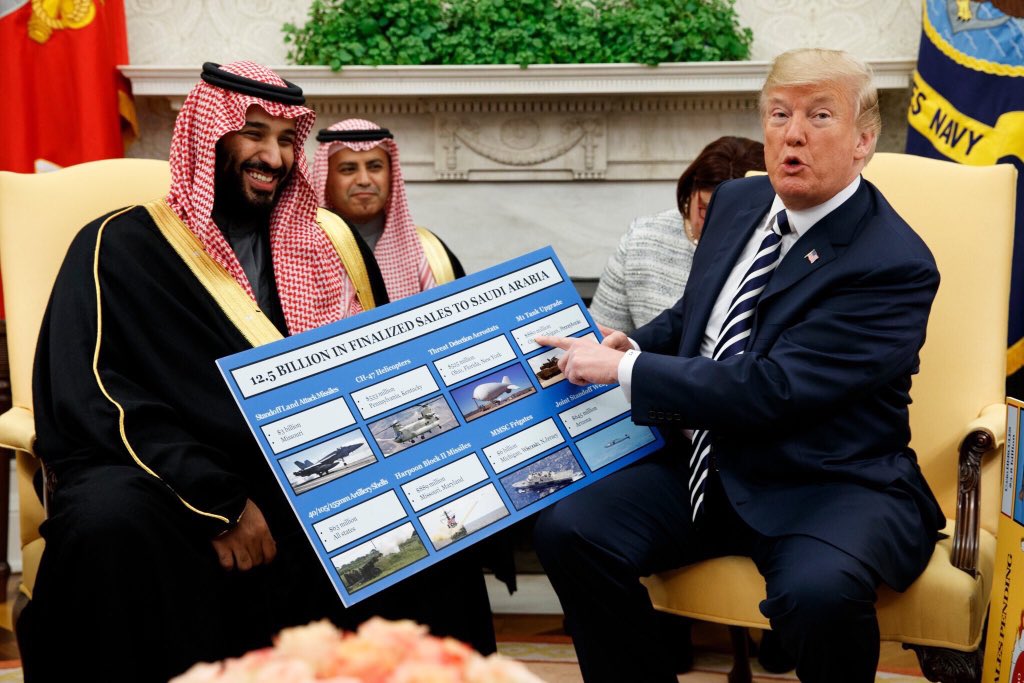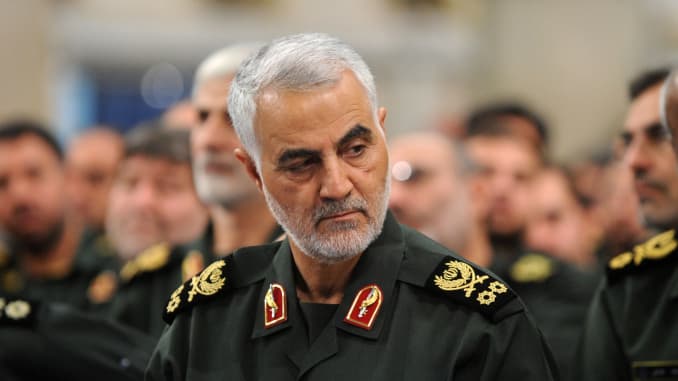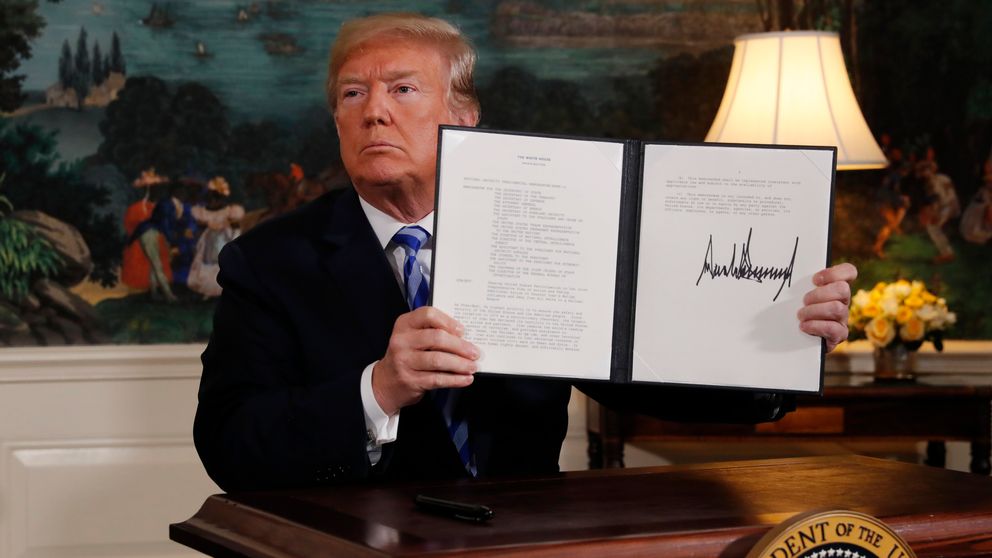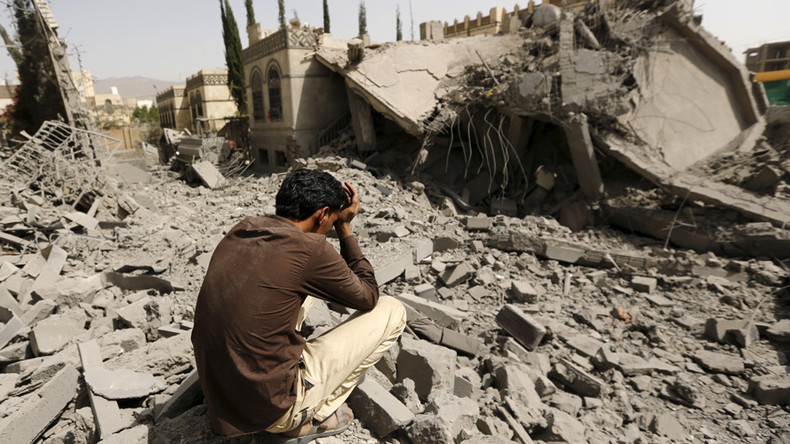(Note: I was working on this piece for another publication before the bill in question failed to reach the floor, thanks to the shameful and bloodsoaked votes of 10 Democrats. So it might be too late, but only now, and hopefully there will be another fight. The article still stands, though, and I think illustrates how the bill failed with neither sound nor fury nor even a passing thought.)

100 were killed when the Saudi bombed this funeral with US bombs
Do you believe the US President, Democrat or Republican, should have the unlimited power to wage unlimited war wherever he wants?
Do you believe that the United States should wage or abet war around the globe, without citizens or their representatives being able to have a say?
Do you think that the United States should be complicit in a genocidal war, even when we have essentially zero real interests in the outcome?
Does what your country does affect you? When blood is spilled in poor places, when families are pulverized into infinity by the sudden flash and pulsing thunder and tearing, renting metal, paid for with your money and launched in your name, does it matter? What responsibility do we have to the world, to ourselves, to history?
These are some of the questions being asked by a Joint Resolution introduced by Bernie Sanders and Mike Lee, saying that US support for Saudi Arabia’s murderous intervention in Yemen has never been authorized by Congress, and should therefore stop providing arms, tactical advice, and military support.
The legal heart of this question asks what it means to be at war in America in the 21st century. At its heart lies the tension between the War Powers declaration at our post-9/11 unlimited war on terror, which has created such an expansive and long-lasting view of war-making that it passes essentially unnoticed when the US participates in a non-Qaeda-based civil war on the Arabian peninsula.
Here’s the War Powers resolution of 1973.
The constitutional powers of the President as Commander-in-Chief to introduce United States Armed Forces into hostilities, or into situations where imminent involvement in hostilities is clearly indicated by the circumstances, are exercised only pursuant to (1) a declaration of war, (2) specific statutory authorization, or (3) a national emergency created by attack upon the United States, its territories or possessions, or its armed forces.
And here’s the Authorization of Military Force, passed right after September 11th:
(a) IN GENERAL- That the President is authorized to use all necessary and appropriate force against those nations, organizations, or persons he determines planned, authorized, committed, or aided the terrorist attacks that occurred on September 11, 2001, or harbored such organizations or persons, in order to prevent any future acts of international terrorism against the United States by such nations, organizations or persons.
Now, in theory, these don’t contradict each other. Indeed, the AUMF was drawn from clause 3, the “national emergency”. (For the definitive history of the AUMF, you should read Greg Johnsen’s Buzzfeed piece on it.) You might notice, though, that it changes “national emergency” to language allowing for the President to “prevent any future acts of international terrorism” by “nations, organizations, or persons.”
Whooboy! That’s the issue, right there. Because: what does that mean? In practice, it has meant: whatever the President wants it to mean, and that has been consistent through multiple administrations, through Bush, Obama, and now Trump. And since there is nobody reading, and indeed, nobody alive or who has ever lived in any conceivable universe, who admires all three of those men, we see that this is an enormous problem.
(And if you doubt its bipartisan credentials, remember that it was essentially reauthorized just last September, even as everyone understood the Current Occupant was a reckless fucking idiot.)
It has been a bloody disaster in practice far more than in theory, of course. There will be a million different opinions about US involvement in Afghanistan, Iraq, Syria, Libya, Yemen, Somalia, Pakistan, Uzbekistan, Niger, Nigeria, Ethiopia, and who knows how many other nations in the years since 9/11. But there is probably no one, except maybe Max Boot, who supports them all. But the President has been allowed to wage war and kill human beings in all these lands, with essentially zero oversight, because of those words.
So why is Yemen now an issue? It’s because Yemen is the apotheosis of this madness, a country whose war is only tangentially about terrorism, and in which our pointless involvement is directly abetting one of the great humanitarian catastrophes of the 21st century.
Yemen’s History is Its Present
It’s hard, possibly impossible, to overstate the degree of horror in Yemen. A civil war has engulfed the country for 7 years, or 10 years, or 14 years, or 24 years, or maybe 28 years. It’s probably best to say that the country has had overlapping civil wars for decades now, and all that stress has come to a head in the last three years.
Those three years have seen a vicious Saudi “intervention” against the Houthis, a group that had been fighting the government of the late Ali Abdullah Saleh since 2004, and has taken over control of large swaths of the country.
Saudi intervention has been a long-running war crime, a series of murderous bombing campaigns led by the US-blessed Mohammed bin Salman, wildly-corrupt future king and murderer of Yemen. The Saudi campaign has pounded Yemen, deliberately targeting food and sanitation centers, destroying roads to cut off supplies, and blockading the ports.

We’re supporting the side of a war who is doing this deliberately.
This has led, predictably, to mass famine and disease. Millions and millions of Yemenis face starvation, and it has seen the world’s worst cholera outbreak in decades. It seems to only get worse. It’s worth mentioning that the Houthis themselves have introduced a brutal rule, with executions, mass imprisonments, and vast corruption.
But don’t think the Saudis are intervening to protect human rights. Indeed, one of their bombing attacks, mostly done with US-supplied weapons, destroyed a prison where those innocents rounded up by the Houthis were living miserably. Freedom came at the bright and final light of an indifferent bomb.
So why are the Saudis intervening, and why does the US support them? It gets back, ostensibly, to Iran. Iran is supporting the Houthis, supplying arms, including missiles that can reach Riyadh. They are supporting their co-religionists in the Houthis, who are Shi’ites.
Because of this, we are told, the Saudis are fighting them. Yemen is a battleground in a larger civilizational war. And the US is deeply involved. The Trump administration, especially, has decided to go all in on the Saudi vs. Iran split, due both to a hatred of Iran, and a belief that helping the Saudis can lead to a regional peace deal which would make Trump look so damn good.

Bragging and grinning about the weapons that lead to genocide
Except, it isn’t this neat. For one thing, as we’ve pointed out time and time again, Iran didn’t get involved in this war in the beginning. They were purported to, back in 2004, by Saleh himself, who wanted to turn the global community against the Houthis. And through the years, as everyone believed it, and as Iran became more invested in the regional frame of war, that they got more involved. After all, if everyone believes you are backing one side, that side better not lose.
But this isn’t based in the regional war; it is based in Yemen. The Houthi movement is part of general Zaydi discontent. Zaydi’s ran parts of north Yemen for 1000 years, before being overthrown in the 60s. In the ensuing civil war they were supported by the Saudis, who then thought monarchy trumped minor schisms. But they lost, and retreated to their ancestral safelands in the far north, near the Saudi border. Decades of neglect and minor oppression followed.
We then have to fast-forward a few decades. Yemen’s north and very secular, just-post-Communist south had united in 1990, but the marriage was a doomed one. When the bullets started flying in 1994, President Saleh used jihadis, just returned from Afghanistan and looking to spill more commie blood, as his troops. When he won, he let them essentially colonize the south, which led to years of discontent, boiling over into the Southern Movement in the late aughts (another of the overlapping civil wars).
That’s well-known, but what is less appreciated is that the jihadis were also allowed to build mosques and impose some thuggish demands on the Zaydis of the north. Now, a Saudi-based movement turned against the monarchists, and a younger generation (as well as one who had living memory of rule) chafed. War broke out in 2004, and lasted through six increasingly brutal rounds.
Now, if you’re reading this curious about terrorism, you might be wondering what the fuss is all about, or why I’m going so deep (although really surface level) into this. After all, the US has been fighting in Yemen for years. We’ve been battling al-Qaeda, the reconstituted al-Qaeda in the Arabian Peninsula, and ISIS there for years, to one extent or another. Why is it weird we are doing stuff there now?
Well, it is true that Yemen has seemed a direct extension of the AUMF, at least in its more expansive interpretations. AQAP, especially, has long been a powerful branch of Qaeda, and seems like it will outlast ISIS. And there have been counter-terrorism raids by the Trump admin, which wants to expand their scope. While I think that is madness and will only help AQAP, it still does seem to fit into the rough definition of the AUMF. So what’s the big whoop?
Well, regardless of what you think of the AUMF, our support for Saudi Arabia isn’t covered. As we saw, the very Sunni Islamists terrorists we’re fighting were supported by, trained by, and brought to life by Saudi Arabia. And yes, the Saudi government, or at least parts of it, is against the radicals now. But regardless: the Saudis are not in Yemen to fight al-Qaeda. We’re helping the Saudis bomb Qaeda’s enemies, the Shi’ite Houthis.
Even if you think the Houthis aren’t our allies, and they certainly are not, this is so far beyond the scale of the AUMF as to be ridiculous. This only has to do with Iran, the true sworn enemy of ISIS and AQ, who hate apostates more than infidels. When you combine that with the reality that the hideous destruction of the country can only boost Islamic militancy, you’ll see we’re 180 degrees from even the most hawkish reading of that short paragraph.
We Are the Nightmare We’ve Created
And yet, there is no outrage. There is no real debate. Sanders-Lee barely got any coverage, and its failure was completely ignored. That 10 Dems voted against it was met with outrage from several activist communities online, but I would be doubtful there will be much impact.
Granted, much of this can be tied to the daily cavalcade of tacky and obscene horrors committed by our slouchingly venal oaf of a President. It is hard for any story to get oxygen. But what has happened, what we’ve allowed to happen to ourselves, isn’t Trump. It’s bigger than that. It’s all-encompassing and generational. It’s where we’ve committed ourselves as a country, beyond party, beyond creed, and beyond reason.
We are so committed to an endless war, with endless permutations, that we greet its continuation with less than a shrug. We greet American complicity in what is nothing less than a genocide with indifference. We don’t even react when bombs we’ve created and sold on the cheap are dropped on hospitals, used to starve innocents and poison children. We can’t be bothered to care that our government is directly complicit in one of the true horrors of the 21st century.
We’ve also come to accept, bizarrely, that we can do this even in the face of abject failure. It’s not just that we’ve come to accept genocidal war. We’ve accepted it even though we know it does no good. We know that Iraq failed and made things worse. We know that Libya bred chaos and, in addition to the nightmares, created more safe havens for Islamists. We know that what’s happening in Yemen can’t end well, even if you only conceive of the world in the narrowest possible American-focused lenses.
So we’ve accepted total and complete war, and accepted we’ll lose. And we don’t care.
That’s terrifying and disquieting and teeth-gnashing and horrible on its own. But even if you accept all this, even if you think it is fine, as long as we are “fighting terrorism”, this particular intervention is pure madness. Because we’re essentially intervening on the side that is promoting terrorism, against the side that is supported by the #1 enemy of the combatants we’ve sworn to kill.
That isn’t to say Iran is the good guy. It’s just to say that being on the wrong, self-defeating side of this war isn’t a bug. It’s the whole goddamn point.
This is madness. And it is madness that we’ve accepted. It’s why Yemen may be the apotheosis of our post-9/11 state of myxomatosis-borne degeneracy, but, we recognize with frothing horror, might not end up being the worst.











